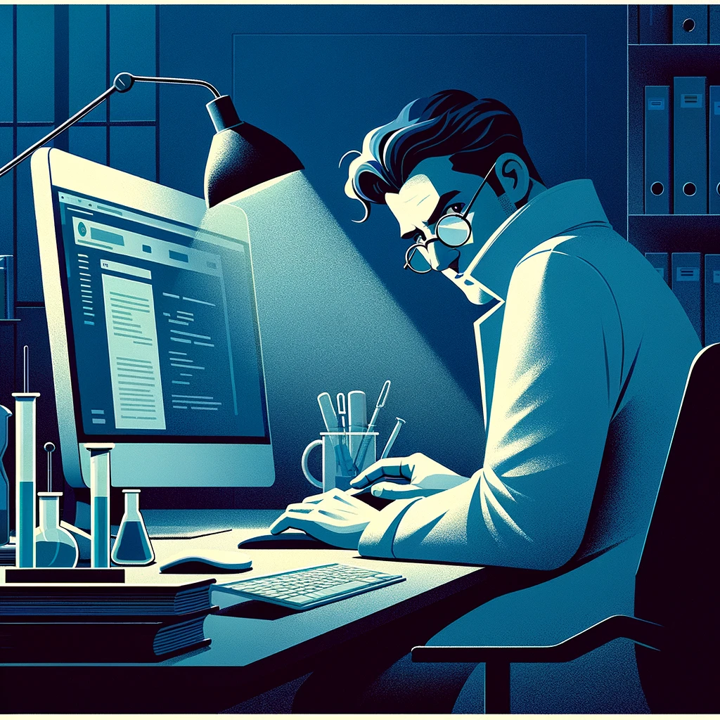Jake Goes to Court
It is not wisdom but authority that makes a law. — Thomas Hobbes

Fortunately, OSU offers students free legal services, so as the judge said things to me, I was able to look to my OSU-appointed lawyer to know when to say ‘guilty.’ And although I should’ve expected this from all the episodes of Suits I’ve watched, the judge caught me off guard when he asked:
“So, would you like to state anything?”
Had I been better prepared for this moment, I would’ve said something like this…
“YOUR HONOR”

[at this point, my lawyer grabs my arm intensely as her eyes bug out of her head]
First, let me provide an astounding fact: Faulty eyewitness testimony accounts for more than 70% of incarcerated individuals who are later exonerated through DNA.
Let me explain.
In 1978, Elizabeth Loftus and her team demonstrated some impressive insight into eyewitness testimony. For example, participants watched someone driving a car before they were either asked questions like, “How fast was the car going?” versus “How fast was the car speeding?” And although this may seem an inconsequential difference, the second question led people to give higher estimates of the car’s speed!

Unfortunately, this misinformation effect is more pronounced in older adults, too, and as you can tell from the white hair and perpetual scowl on Officer Moran’s face (no offense, Officer Moran), he is old.
[my lawyer has slowly backed out of the room and is now making a dash for it]
Now, before I conclude, let me express that I don’t think Officer Moran intentionally deceived everyone here in misreporting my speed. Research shows these memory biases occur even when people are trying to be as honest as possible.
In fact, our memory is so prone to corruption, that researchers have been able to implant false memories in individuals. For examples, across numerous studies, researchers have used suggestion and subtle hints to make people honestly “remember” that as children they had done things like (1) drowned and been rescued by a lifeguard, (2) taken a hot air balloon ride, and (3) even spilled punch at a wedding on the bride’s parents!
So to say Officer Warren’s memory is trustworthy…
…What’s that? He has the speed recorded on his radar gun and it has me clocked doing 30 in a 20 zone?
Well in that case, let me tell you about the research on—”
“SENTENCED!”
Through good fortune, I did not attempt the above monologue when the judge asked for my statement. And although we had some fun with Officer Moron, I mean Moran today, the court did take pity on me and reduced both the ticket and the fees.
And you know, maybe it did have something to do with what I actually said when the Judge asked for my statement:
“I, um, I’m sorry for speeding.”
Sincerely,
jdt
Everyday Psychology: Have you ever gotten into an argument with a friend about a detail differing between your memories? Although this is bound to happen, research shows that others can also make the biases of memory worse! For example, researchers had participants wear glasses such that looking at the same screen produced two different videos. Later, the pair had to get together and recall everything they could from the video. And although they each saw related but different videos, after conferring with one another, they each came to remember the other’s video as if it were their own! So the next time you get in a memory debate, the truth is you’re probably both wrong 😉
Brewer, W. F., & Treyens, J. C. (1981). Role of schemata in memory for places. Cognitive Psychology, 13, 207–230.
Deffenbacher, K. A., Bornstein, B. H., Penrod, S. D., & McGorty, E. K. (2004). A meta-analytic review of the effects of high stress on eyewitness memory. Law and Human Behavior, 28, 687–706.
Lindsay, D. S., Hagen, L., Read, J. D., Wade, K. A., & Garry, M. (2004). True photographs and false memories. Psychological Science, 15, 149–154.








But such a piddling little thing Jake, memory bias, if weighed alongside confirmation bias.
Indeed confirmation bias is a very powerful one. And in fact, it is confirmation bias itself that can in turn influence a memory bias. For example, because you expect criminals to be scary looking, you may recall that the culprit was scary looking, when really he wasn’t.
However the memory bias comes about, though, it can have some serious consequences. For as I pointed out, the majority of criminal sentences that are overturned come through faulty witness testimony (i.e., biases in the witness’s memory). Of course, in the example I provided, memory bias was used more tongue-in-cheek, but you get the idea 😉